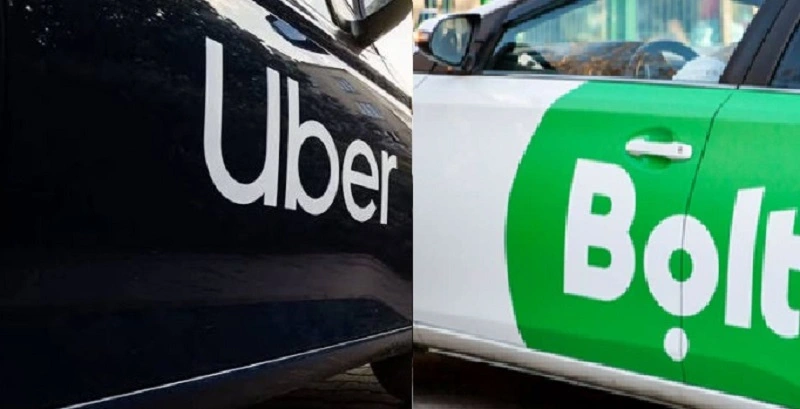
IN PARTNERSHIP WITH

TGIF 🎊
A Saudi woman was recently handed a 34-year prison sentence for—you guessed it—tweeting.
Salma al-Shehab tweets and retweets in favour of women’s rights to drive in Saudi were apparently contrary to Saudi’s cybercrime law, and she “disturbed public order and destabilised the security and stability of the state”.
Al-Shehab’s sentence is the longest-known sentence for a women’s rights activist. It also comes a few months after Egypt sentenced TikToker Haneen Hossam to 2 years imprisonment for “violating family values and principles”. Hossam’s crime? Inviting other people—especially women—to join the platform and earn with their videos.
CRYPTO MARKET: SOUTH AFRICA FOR CRYPTO

|

|

|
|---|---|---|
|
Bitcoin 
|
$22,836 |
– 2.64% |
|
Ether 
|
$1,822 |
– 1.48% |
|
BNB 
|
$291 |
– 4.81% |
|
Solana 
|
$38.32 |
– 6.22% |
|
Cardano 
|
$0.49 |
– 7.95% |
|
|
Source: CoinMarketCap
|
|
* Data as of 06:30 AM WAT, August 19, 2022.
Uganda and Nigeria might be telling their citizens and banks to stay off crypto, but South Africa is taking a different route.
Yesterday, South Africa Reserve Bank (SARB)’s Prudential Authority urged all commercial banks to take on crypto, even with its “threats”.
South Africa has been at the centre of some of the world’s biggest crypto scams. In July, the US Commodities Futures Trading Commission (CFTC) charged a South African resident in the largest fraud scheme involving bitcoin, a scheme worth $1.7 billion. In June 2021, founders of crypto startup AfriCrypt vanished after running a $3.6 billion crypto scam.
Given all these scams, many commercial banks in South Africa have terminated relationships with crypto assets service providers (CASP). In response, South Africa’s central bank has asked the banks to preserve relationships with CASP and put in place risk-assessment measures as opposed to total avoidance.
VODACOM MIGHT HAVE LIED TO INVESTORS ABOUT THE SUCCESS OF STREAMING SERVICE

South Africa’s leading mobile network provider Vodacom might have misled investors in its official financial results about the success of its now discontinued video streaming platform “Video Play”, according to a well-placed source on the service’s team.
Speaking to MyBroadband, the source said that Video Play’s figures were highly inflated, and when management realised what was really happening, they pulled the plug on the service.
A brief history of Video Play’s numbers
Vodacom launched the Video Play service in August 2015, and when the company started to provide shareholders with figures about its Video Play service, it seemed like a massive success.
In its September 2019 interim results, Vodacom told investors they had 1 million Video Play customers who made 14.8 million video-on-demand purchases. Vodacom later told shareholders they had achieved over 40 million Video Play purchases in 2019.
However, in the company’s integrated report for the year ended March 31, 2020, Vodacom reported 3.5 million Video Play purchases made on the platform during the year, a number an order of magnitude lower than the other figures Vodacom previously provided for the same financial period.
Vodacom goes quiet
After the huge dip in the service’s numbers, Vodacom stopped reporting subscriber numbers or purchases related to the streaming service and migrated subscribers to a free-mode model up to 30 June 2022 and then quietly pulled the plug on Video Play on July 1, 2022 with executives who were part of the platform’s management currently no longer at the company.
Asked for comment by MyBroadband on the strange numbers, Vodacom declined to offer a response and also could also not say why its Video Play purchases suddenly plummeted when other streaming services blossomed in South Africa.
The network explained that despite the streaming service’s initial success, it wanted to become an enabler for video streaming through its add-to-bill capability and its VodaPay Super App instead of operating a standalone streaming service.
Like its numbers, the explanation just doesn’t add up
It does not seem to make logical business sense for Vodacom to move a million paying subscribers who apparently made 40 million purchases to a free platform.
If Video Play grew as rapidly and was as successful as the numbers showed, Vodacom would have perhaps offered it as a streaming service in the VodaPay Super App.
Zoom out: The Video Play service formed a core part of the network provider’s Vision 2025 strategy which seeks to “deliver the most engaging customer experience, reduce demand and increase digital adoption”, further adding to the mystery of its discontinuation.
Don’t just send money, send money fast. Send and receive money directly to mobile wallets, bank accounts, Barter or through cash pickup with $end.
Visit send.flutterwave.com and do it now!
This is partner content.
BOLT AND UBER DRIVERS ARE ON STRIKE IN SOUTH AFRICA

Drivers of Uber and Bolt in Cape Town have suspended their business activities and embarked on a strike.
What they want? A bigger cut on earnings and the fast-tracking of permits for e-hailing operators in the Western Cape.
More on the strike
The drivers began the demonstrations in Cape Town on Wednesday, taking the fight to Bolt’s offices in the city where they submitted their demands.
The strike is now in its second day with the workers moving to the office of the city’s Mayor, Geordin Hill-Lewis, to whom they submitted a memorandum yesterday (Thursday).
The drivers’ demands
In the memorandum, the drivers demanded a faster process for renewing permits, which is suffering from a significant backlog, and called on the Mayor to temporarily prohibit the impounding of their vehicles.
In an interview with Fin24, Uber Union Chair Siyabonga Hiabisa mentioned that the drivers also want Uber to reduce its commission from 25% to 10% and increase the drivers’ rate per kilometre to R10.
The drivers have given the two ride-hailing companies14 days to respond to their demands.
The ride-hailing platforms respond
Head of communications for Uber in South Africa Mpho Sebelebele promised that Uber was going to work towards addressing the issues.
He also mentioned that the company understands the plight of their drivers and that it was working on ways to improve drivers’ earnings on its platform.
For Bolt, country manager Takura Malaba said that the company would engage the striking drivers to understand their demands, but maintained that affordability is central to Bolt’s business model.
Zoom out: Uber and Bolt continue to experience tough acclimatisation to the continent’s operating environment. Earlier this year, Tanzania’s Land Transport Regulatory Authority (LATRA) allowed the companies to operate at a 15% commission rate, a decision which led to Uber’s departure from the country and Bolt limiting its operations to corporate clients only. It’s also the second time this year that ride-hailing drivers are striking in South Africa. In March, the drivers embarked on a 3-day strike in protest of high commission fees and safety issues.
TC INSIGHTS: FUNDING TRACKER
This week, Pastel, a Nigerian fintech startup raised $5.5 million in a seed round led by TLcom Capital with participation from Global Founders Capital (GFC), DFS Labs, Ulu Ventures, Plug, and Play, Golden Palm Investments, and Soma Cap.
Here are the other deals this week:
- Egyptian startup Bonbell, a mobile app specializing in food ordering and digital solutions for table and meal reservations, closed an initial funding round worth $350k from a Canadian angel investor.
- Nairobi-based Lori Systems, an e-logistics company, raised an undisclosed amount in funding from Google to help it to continue to expand across the continent.
- Egyptian startup Convertedin, a marketing operating system for e-commerce brands, raised $3 million in seed funding. The round was led by Saudi Arabia-headquartered Merak Capital, with participation from 500 Global and MSAS.
That’s it for this week!
Follow us on Twitter, Instagram, and LinkedIn for more funding announcements.
Increase your online sales with a Paystack Storefront – a free, beautiful seller page that helps you bring creative ideas to life.
👉🏾 Learn more at paystack.com/storefront.
This is partner content.
EVENTS: THE FUTURE OF WORK

The rise of automation is setting a new rule in the workspace. Fourteen percent of jobs are likely to be automated and technology continues to take on human roles. Thus, individuals need reskilling that helps them transition into this new workspace.
How are businesses operating in this new reality and how are individuals adapting to the changing demands of the global workplace?
On Friday, August 26, we’ll be discussing this on TechCabal Live.
Book your seat here.
IN OTHER NEWS FROM TECHCABAL
Women’s only ride-hailing platform, HerRyde, launches in Abuja.
Here are the top 5 freelance platforms to sell your skills in Nigeria.
JOB OPPORTUNITIES
- Big Cabal Media – Head of Events, Newsletter Editor – Lagos, Nigeria
- Klasha – Product Manager—Mobile, Senior Product Designer – Cape Town, South Africa
- TeamApt – Technical Product Manager, Senior Software Engineer, Business Analyst – Remote
- Mono – Full stack Engineer – Nigeria (Remote)
- Yellowcard – Product Owner, Country Manager—Zambia – Africa (Remote)
What else is happening in tech?
- Here’s how Nigerians can pay rent monthly with EaziRent.
- Meet BizGem, a one-stop embedded finance provider for businesses.
- Ghana’s runaway inflation pushed its central bank to a record interest rate spike.
- Microsoft Kenya targets recent software engineering graduates in renewed hiring spree.




























